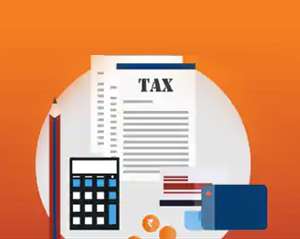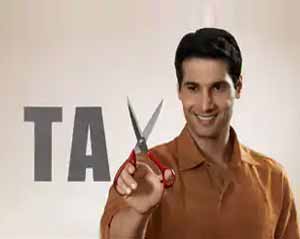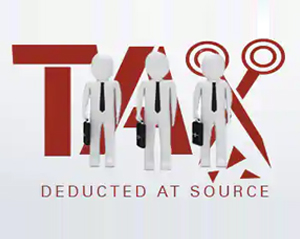In your 20s
Your 20s are the best time to start investing for your future as you are young and possibly single with lesser responsibilities. However, this is also a time when you have just begun earning and may know very little about investing. Hence, it makes sense to stick to simple investments and insurance plans that can bring you tax relief and are easy to follow at the same time. You can choose from the following tax-saving instruments:
- Equity Linked Savings Scheme (ELSS): Market-linked products and equity fund instruments like ELSS, are a great way to avail tax benefits. The lock-in period for ELSS is just three years, which makes it a perfect choice for youngsters. This is the shortest lock-in period available in all tax-saving investment options. ELSS is an investment plan that is eligible for deduction from taxable income up to ₹1,50,000/- under section 80C* of the Income Tax Act,1961.
- Health Insurance: Not just as a tax saving scheme, health insurance plans are also essential for ensuring that you can meet your health expenses in times of emergencies. Health insurance premiums also increase if you buy it at a later stage in life, which is why it is a good idea to get one in your 20s when you are in the prime of your health. Under section 80D* premiums paid towards insuring your health are eligible for a deduction of up to ₹ 25,000/- from your taxable income. In addition to this, if premiums are paid for parents, then you are eligible for additional deduction upto ₹ 25,000/- over and above the ₹ 25,000/- mentioned above. If the insured is a senior citizen, you are eligible for deduction upto ₹ 50,000/- instead of ₹ 25,000/- from your taxable income.
- Life Insurance: Similar to health insurance, life insurance plans are also a crucial investment that you should aim to get as early in life as possible. You can get a term insurance plan at a low premium in your 20s and can change the nominee or increase the cover amount at key milestones in your life later. This investment plan is eligible for deduction under section 80C* upto ₹ 1,50,000/-. The benefits received from life insurance plans are also tax-exempt, subject to conditions under section 10(10D)*.
- House Rent Allowance (HRA): This is an important component of your salary and is provided by your employer to cover the expenses of your rented accommodation. You can claim HRA under section 10(13A)* of the Income Tax Act, 1961. The exemption amount is the least of the below,
- HRA received from your employer
- Actual rent paid more than 10% of salary
- 50% of the salary if you stay in a metro city and 40% of the salary if you stay in a non-metro city
- Public Provident Fund (PPF): PPF is a government savings account and a preferred choice for many people in the country. PPF gives returns of 7.9% with the entire amount being non-taxable. However, it comes with a lock-in period of 15 years This investment plan is eligible for deduction from taxable income under section 80C upto ₹ 1,50,000/-.
- Other Debts: Your 20s are also a good time to pay back any education loan that you may have taken. You can get a deduction on the interest paid portion of your education loan for a maximum of 8 years or till the time the interest on the loan is paid (whichever is earlier) under section 80E* of the Income Tax Act,1961.
In your 30s
This may be the time when you get married and start a family. Your responsibilities are certainly increased from when you were in your 20s. You may also have more debt on your shoulders and may fall into a higher tax bracket. Here are some things to note.
- Home Loans: If you have taken a home loan, you can claim deduction on the repayment of principal amount under section 80C* of the Income Tax Act, 1961 subject to certain terms & conditions. Note that the limit for deduction under section 80C of is upto ₹ 1,50,000/-. You can also claim deduction on interest paid for a home loan, in a financial year under section 24* of the Income Tax Act, 1961.
- Retirement Planning: Experts suggest that you should start retirement planning with your very first salary. But if you haven’t yet started, your 30s are a good time to begin. The National Pension Scheme is an excellent tool to invest in. By investing in this you can get a deduction under section 80CCD* of The Income Tax Act, 1961 upto ₹ 1,50,000/-.
- Upgrade your Life Insurance policy: Depending on your personal and professional situation, you should upgrade your life insurance or add new beneficiaries in this phase of life. You can continue to claim a deduction from taxable income of upto ₹ 1,50,000/- under section 80C of the Income Tax Act, 1961.
- Health Insurance: You may have health insurance for yourself but make sure that you get a suitable plan for your spouse, dependent children and parents as well. Under Section 80D, premiums paid towards insuring the health of self, spouse, and dependent children are eligible for a deduction up to ₹ 25,000/- from your taxable income. In addition to this, if the premium is paid for parents, then you are eligible for an extra deduction upto ₹ 25,000/- over and above ₹ 25,000/- mentioned above. If the insured is a senior citizen, you are eligible for deduction upto ₹ 50,000/- instead of ₹ 25,000/- from your taxable income.
- Balance of Equity and Debt Funds: You can consider investing in Unit Linked Insurance Plans (ULIPs). A part of your premium goes towards your cover while the remaining is invested in the funds of your choice. With ULIPs, you can not only claim deduction under section 80C of the Income Tax Act 1961, but also invest in a mix of equity and debt to strike a balance between investment risk and returns.
In your 40s
This may be the time when your household responsibilities may considerably increase with added expenses involving your children like higher education, marriage, and so on. You or your spouse may even have some health expenses. In this period, you can concentrate on the following options:
- Child’s Education Loan: If you take up a loan for your child’s higher education, you can get a deduction under section 80E of The Income Tax Act, 1961. You can get a deduction on the interest paid on the education loan taken for a maximum of 8 years or till the time the interest on the loan is paid (whichever is earlier).
- Low-Risk Debt Funds: Savings instruments like fixed deposits that offer low risks are great for long-term savings. This investment plan is eligible for deduction under section 80C of the Income Tax Act,1961.
- Home Loan: Since home loans are long-term debt, you can continue to claim deduction on repayment of principal amount under section 80C of the Income Tax Act, 1961 subject to certain terms & conditions. Kindly note that limit for deduction under section 80C* of the Income Tax Act, 1961 is upto ₹ 1,50,000/-. You can also claim a deduction of interest paid, for a home loan in a financial year under section 24* of the Income Tax Act, 1961.
- Retirement planning: Retirement planning is more important than ever in this phase of life as you have very few years left. You can consider increasing your contributions to the National Pension Scheme (NPS) or other pension accounts to avail maximum benefits. By investing in NPS, you can get a deduction under section 80CCD of The Income Tax Act, 1961 upto ₹ 1,50,000/-.
In your 50s
Before you step into retirement, you must aim to pay off all your loans and focus solely on retirement planning. The 50s is the time for withdrawals and not contributions. Here’s what you should know.
- Home Loan: Make sure to pay off all the interests on home loans before you retire. It can be challenging to pay the interest from your pension.
- Child Education Loan: Since both, you and your child can avail of the tax benefits, you can consider taking a step back from paying the interest and let your child take over. They will be able to claim deduction under Section 80E* of the Income Tax Act, 1961.
- Retirement Planning: More than the contributions, you should now spend some time on planning your withdrawals. Make sure you understand the tax implications on withdrawals. For example, 40% of NPS withdrawals are tax* exempt on maturity.
Tax savings can be adopted at every stage in your life. As long as you make it a priority in your financial planning, you can avail of great benefits throughout your life.
People like you also read...






